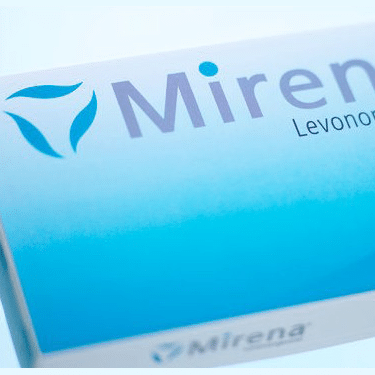Study Finds Young Women More Likely to Suffer Mirena IUD Expulsion
Teen girls between the ages of 14 and 19 who use intrauterine birth control devices like Mirena IUD may be at risk of experiencing IUD expulsion.
The findings of new study raise serious concerns about recent recommendations that teens should use Mirena, ParaGuard and other intrauterine devices (IUDs) for birth control, suggesting that young women may have a higher risk of experiencing problems where the IUD is unexpectedly expelled from the body. Mirena and Paraguard are implantable forms of birth control known as intrauterine devices (IUD) or intrauterine systems (IUS), which are placed in the uterus and are designed to provide long-term pregnancy prevention for up to five years. Despite increasing concerns about the potential for Mirena IUD to migrate from the uterus to other parts of the body and cause serious injuries, such as perforation of internal organs, the devices have been marketed by their manufacturing companies as a “hassel-free” form of birth control, especially for women who may have a difficult time remembering to take daily birth control.
Intrauterine Devices vs. Birth Control Pills
In recent months, the American Academy of Pediatrics (AAP) has come out in support of IUD birth control devices like Mirena, advising doctors to discuss implanted birth control with teens, parents and caregivers before recommending oral contraceptives. According to the AAP, 9% of women have forgotten to take birth control pills that have been prescribed to them, and the percentage of teenage girls who have forgotten to take their oral contraceptive is estimated to be even higher. As a result, the organization recommends the use of IUDs among teens, which are supposed to last for years, and which the AAP says will protect teenagers from becoming pregnant, even if they don’t use a condom or forget to take a birth control pill.
Risk of Mirena IUD Expulsion
In contradiction of the recommendations by the American Academy of Pediatrics, the findings of a new study published in the journal Obstetrics & Gynecology raises serious concerns about intrauterine devices, indicating that young women between the ages of 14 and 19 may be more likely to experience IUD expulsion than older women. In the study, researchers examined data on 5,403 women using implantable birth control, most of whom (78%) used the Mirena IUD. Over a period of 36 months, the researchers found that one in 10 women suffered expulsion of their IUD, with teenage girls being more than twice as likely suffer a Mirena IUD expulsion, and more than three times as likely to eject the ParaGuard device.
Contact an Experienced Mirena IUD Attorney for Help
Although the AAP warned in its report that there is some risk of infection when IUDs are first implanted, the report failed to address the potential risk for intrauterine devices like Mirena to spontaneously migrate from the uterus to other parts of the body, which, in many cases, occurs long after the birth control device is implanted. Thousands of women across the country have reported serious complications where their Mirena IUD punctured the uterus and moved out of position, causing debilitating and permanent internal injuries. Since 2000, more than 70,000 adverse event reports have been submitted to the FDA involving Mirena IUD side effects, including device migration, perforation of internal organs and infections. If you believe you have been harmed by side effects of Mirena IUD, our consumer advocates at the Leading Justice can help put you in touch with a qualified Mirena IUD lawyer today.
[box type=”note” align=”aligncenter” ]Source: http://journals.lww.com/greenjournal/Abstract/2014/10000/Association_of_Age_and_Parity_With_Intrauterine.11.aspx[/box]

